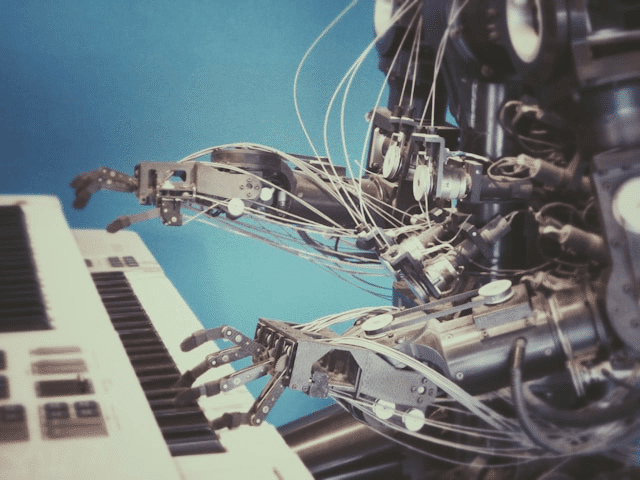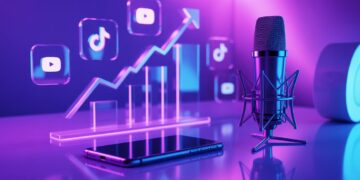Music has always been a deeply human form of expression shaped by culture, emotion, and creativity. From the first rhythmic beats on ancient drums to symphonies and digital production, the art of songwriting has historically relied on human imagination. Now, artificial intelligence is stepping into the spotlight, transforming how songs are written, produced, and experienced.
AI music composition is no longer a futuristic concept; it’s already here, quietly influencing the music industry in surprising ways. Using advanced algorithms, AI can compose original songs, assist musicians in the creative process, and even generate complete musical scores. The result is a fascinating blend of technology and artistry that is reshaping what it means to make music.
How AI Music Composition Works
At the core of AI generated music are machine learning models and neural networks trained on vast datasets of songs from various genres, eras, and cultures. By analyzing millions of notes, melodies, chord progressions, and rhythms, these systems learn to recognize patterns that define different styles.
For example, OpenAI’s MuseNet can create music in the style of Mozart or modern pop, while AIVA (Artificial Intelligence Virtual Artist) is used for composing symphonic and cinematic scores. Amper Music, another popular platform, allows creators to instantly generate custom background tracks for videos and podcasts without any prior musical training.
The process often begins with a user selecting parameters like tempo, genre, or mood. The AI then uses its knowledge of musical structure to generate a composition, which can be refined, edited, or layered with human input.
Creative Uses of AI in Music
AI in songwriting is not about replacing musicians it’s about expanding creative possibilities. Today’s AI music tools can:
-
Generate melodies and chord progressions to spark inspiration.
-
Assist in lyric writing by suggesting rhymes, metaphors, or themes.
-
Compose background music for films, commercials, and video games.
-
Remix existing songs or reimagine them in different styles.
These tools are especially valuable for independent artists, small studios, and content creators who need quality music quickly and affordably. They can help overcome creative blocks and open up genres or sounds that might be unfamiliar to the composer.
Benefits of AI-Composed Music
One of the biggest advantages of AI music creation is speed. Where a human composer might take hours or days to create a track, an AI can produce a fully arranged song in minutes. This efficiency can be game-changing for industries that require large volumes of music, such as advertising or gaming.
Cost-effectiveness is another major benefit. Independent filmmakers, YouTubers, and game developers can access professional-quality music without hiring a full production team. AI also democratizes music creation, enabling people with little or no musical background to produce tracks that sound professional.
Finally, AI encourages experimentation. Since an AI can generate countless variations of a song, creators can explore ideas they might not have considered otherwise.
Challenges and Criticisms
Despite its advantages, AI in music composition faces challenges. Critics argue that AI generated music lacks the emotional depth and personal storytelling that comes from lived human experience. While AI can mimic style, it cannot replicate genuine human sentiment.
There are also ethical and legal concerns. Who owns the copyright to AI composed songs the programmer, the user, or the AI system’s creators? The law is still catching up to these questions.
Additionally, some fear that widespread use of AI in songwriting could lead to a loss of jobs for musicians and composers, particularly in commercial music production.
Real-World Examples
AI is already making waves in the industry. Taryn Southern, a singer-songwriter, released an album called I AM AI composed with the help of AI tools. In the gaming world, developers use AI music generators to create dynamic soundtracks that adjust to player actions.
Advertising agencies are turning to AI to produce affordable jingles and brand themes, while film studios experiment with AI-assisted orchestration to speed up production timelines. Even major labels are exploring AI as a co-composer for certain projects.
The Future of AI in Songwriting
Looking ahead, AI is likely to become a standard part of the music creation toolkit. Rather than replacing musicians, it could serve as a creative collaborator suggesting ideas, providing starting points, or handling repetitive tasks in the production process.
We may see AI integrated into digital audio workstations (DAWs) as a real-time assistant, offering melody suggestions, harmonies, or arrangement tips as artists compose. AI generated music could also lead to personalized soundtracks tailored to an individual’s mood, environment, or activities.
While some artistic purists may resist, the reality is that AI in songwriting is opening doors to new forms of expression and accessibility in music creation.
Conclusion
AI music composition represents a turning point in how we think about songwriting. It’s a tool that blends technological innovation with artistic ambition, making it possible for anyone to create music and for professionals to push their boundaries further.









